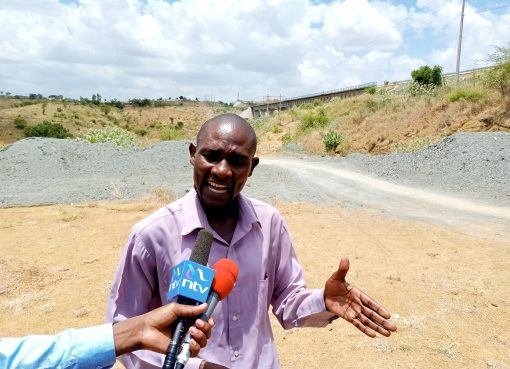Hundreds of families who occupy trust land in Mombasa say they face an uncertain future and called on the National Land Commission (NLC) to resolve the issue.
Residents have for decades been complaining that outsiders seized their land making many of them squatters.
More than 10,000 residents have built houses on land belonging to the descendants of former Coast rulers who live abroad, especially Oman on what is referred to as tenants-at-will.
The families’ inhabiting the land along the contentious ten-mile coastal strip have held a press conference to express fears that they face an unfair eviction order from the absentee landlords.
The squatters said they should be allocated the contentious parcels of land in the coastal city and be issued with title deeds so that they can develop them.
The squatters’ spokesman Abdullahi Farah says the tenants pay rent for the land to absentee landlords in Oman who have been collecting land rates through the Sir Ali Bin Salim Trust.
Farah called on the Gershom Otachi led NLC to classify their case as one of the many historical land injustices at the Coast to enable them to benefit from the government’s resettlement plan.
He says the long-standing dispute between the tenants-at-will and the descendants of pre-independence coastal rulers (Liwali) who represented the sultan of Zanzibar is far from over.
The absentee landlords have in possession land titles under the Land Titles Ordinance of 1908 when Kenya was an East Africa Protectorate.
“The parcels of land in dispute are registered in the name of former coast ruler Sheikh Salim Bin Khalfan and the titles date back to 1908 but residents are now having problems with the Liwali heirs,” he said.
Farah suggests that the families who have been occupying the land belonging to the absentee landlords for decades be granted ownership documents.
He said the affected areas in Mombasa Island are Bondeni, Mwembe Kuku, Mji wa Kale, Kaloleni, Sparki, Majengo, Sidiria, Sargoi, Guraya, Kiziwi and Ziwani areas.
“We have presented our case before the NLC and expect a favorable outcome by June this year to end this problem we have been facing since pre-independence,” said Farah.
He said the squatters have appeared before the NLC several times submitting their claims of historical injustices for investigation and redress.
Former Mombasa mayor Rajab Sumba said the long running land dispute was complicated and called on President William Ruto to intervene.
Sumba says the tenants at will who live on land belonging to absentee Arab landlords should be allocated the land and issued with title deeds as security of tenure.
The former mayor says the NLC should investigate land allocations at the coast with a view to redistribute public land to the landless.
Sumba says most victims are from the Miji Kenda, Swahili and Bajuni communities who despite being the indigenous have lived on such land for centuries but are considered squatters by foreigners.
The two squatter’s representatives also dismissed a recent report by a local daily that the NLC rejected their claim of being victims of historical land injustice.

conference and called on the NLC to resolve historical land injustices in Mombasa. Photos by Andrew Hinga
They said in a recent town hall meeting with senior officials of the NLC the commission agreed to classify their case as one of the many historical land injustices at the coast.
They said their complaint was unique and was only found in Mombasa, Kwale, Kilifi and Lamu counties where absentee landlords rent land to willing tenants who pay ground rent after building a house.
Yesterday, the tenants wanted the NLC to classify their case as one of the many historical land injustices at the Coast to enable them to benefit from the government’s resettlement plan.
Zuhura Adam says theirs has been a desperate long struggle to reclaim pieces of land “our heritage” that we called home for decades.
“We want perennial threats of evictions of tenants at will to end once and for all and that we should be given legal protection and security of tenure,” she said, adding that most of them are living in fear of their houses being auctioned by the landlords.
She says the NLC needs to move with speed to address the emotive land issue at the coast before things go out of hand.
Zuhura claims that most of the victims are living in fear of their houses being auctioned by the absentee landlords who hike land rates arbitrarily.
She lamented that they are now being forced to part with a lot of money after landlords hiked rent.
By Mohamed Hassan





